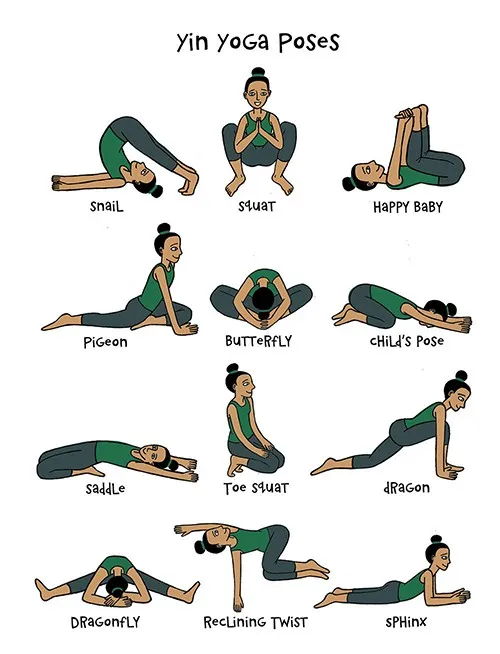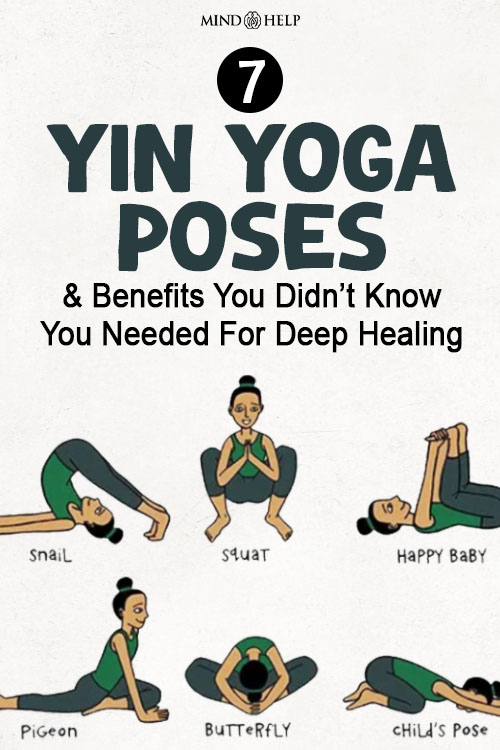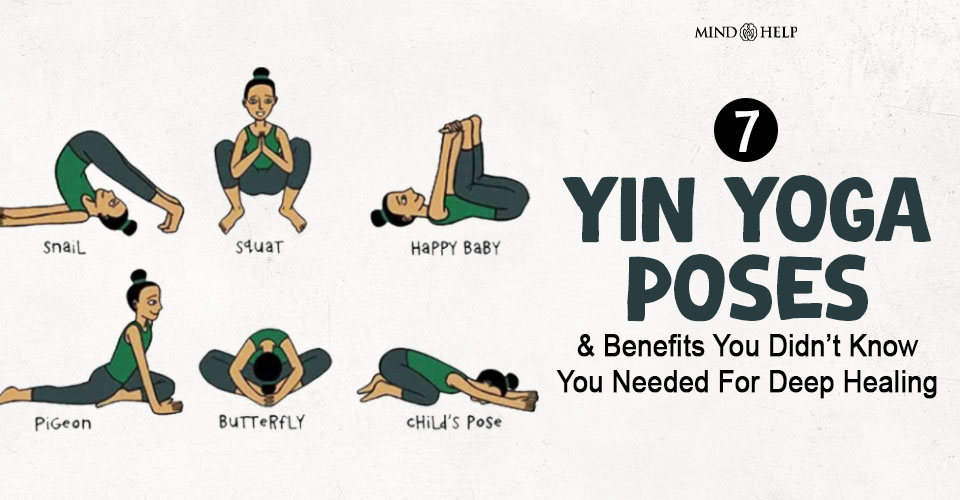In today’s fast-paced wellness culture filled with intense workouts and trendy studios, there’s a quiet, powerful practice that offers something different: Yin Yoga.
Unlike high-energy classes, Yin Yoga style invites you to slow down, breathe deeply, and connect with yourself on a physical, emotional, and even spiritual level.
But what is Yin Yoga, and why are so many people turning to it for healing and balance?

What Is Yin Yoga?
Yin Yoga is a slow, meditative style of yoga where you hold poses for three to ten minutes at a time. It’s rooted in Traditional Chinese Medicine and Taoist philosophy, which emphasize balance between yin (stillness) and yang (movement).
While most modern yoga styles like Vinyasa or Power Yoga focus on muscle engagement and movement (yang), Yin Yoga poses target deeper layers of the body: connective tissues like fascia, tendons, and ligaments. The long-held stretches gently stress these tissues, encouraging hydration, elasticity, and mobility over time.
This unique approach also stimulates energetic pathways, or meridians, similar to those used in acupuncture, supporting overall health and emotional balance.
Yin Yoga Benefits for Body, Mind, and Spirit
Yin Yoga’s benefits extend well beyond flexibility. Practitioners often report feeling more mentally calm, emotionally balanced, and physically at ease.
Read more here: Night Time Habits: 5 Activities To Do At Night To Wake Up Happier
Physical Benefits
- Improves flexibility and joint mobility
- Increases circulation to connective tissues
- Enhances fascia hydration and elasticity
- Supports recovery from injury or chronic tension
Mental and Emotional Benefits
- Reduces stress by calming the nervous system
- Improves sleep and mental clarity
- Encourages emotional release and resilience
- Builds mindfulness and breath awareness
7 Yin Yoga Poses And Their Deeper Benefits
Yin Yoga poses may look simple, but each one is a doorway into deeper layers of your physical and emotional body. Here’s a breakdown of some of the most practiced poses and how they help:
1. Butterfly Pose (Baddha Konasana)
How: Sit with soles of your feet together, knees falling outward. Fold forward and round your spine. Use props for support.
- Physical: Opens hips, groin, and lower back
- Mental: Cultivates stillness and emotional release
- Energetic: Stimulates kidney and urinary bladder meridians
- Best for: Inner peace, relieving anxiety, and easing tension from sitting
- Best for: Letting go of fear and stored emotional tension
2. Caterpillar Pose (Seated Forward Fold)
How: Extend your legs, let your spine round, and fold over your thighs with soft knees.
- Physical: Stretches hamstrings and spine
- Mental: Deeply grounding and calming
- Energetic: Activates bladder meridian along the back
- Best for: Overthinking, racing thoughts, and insomnia
3. Dragon Pose
How: Step into a low lunge with your back knee down. Hands can stay on the floor or on blocks. Deepen gradually.
- Physical: Stretches hip flexors and quads; targets the psoas
- Mental: Challenges your tolerance for discomfort and stillness
- Energetic: Opens spleen, kidney, and liver meridians
4. Sphinx Pose
How: Lie on your belly and lift your chest onto your forearms. Keep glutes soft and spine long.
- Physical: Gently compresses lower back; opens front body
- Mental: Invites subtle alertness without agitation
- Energetic: Stimulates kidneys and adrenals
- Best for: Fatigue, low motivation, and adrenal burnout
5. Reclining Twist
How: Lie on your back, bring one knee across the body, and extend the opposite arm out.
- Physical: Massages spine and abdominal organs
- Mental: Supports emotional digestion and reset
- Energetic: Works bladder and gallbladder meridians
- Best for: Detox, emotional clarity, and spinal decompression
6. Shoelace Pose
How: Sit with knees stacked over each other, feet near hips. Fold forward or stay upright. Add props if needed.
- Physical: Opens outer hips and glutes
- Mental: Brings up and softens stuck emotional tension
- Energetic: Engages liver and gallbladder meridians
- Best for: Grief, frustration, and releasing old stories
7. Child’s Pose (Yin Variation)
How: Kneel, sit on your heels, and fold forward with forehead on the mat or a bolster.
- Physical: Gently stretches spine, hips, and knees
- Mental: Offers a feeling of being held and grounded
- Energetic: Stimulates spleen and stomach meridians
- Best for: Soothing anxiety, fatigue, or emotional overwhelm
How to Practice Yin Yoga Safely
Because Yin Yoga poses are held for several minutes, it’s important to approach your practice mindfully:
- Go to your edge, but not into pain
- Stay still and let gravity do the work
- Breathe slowly through your nose
- Exit poses gently, especially from deep stretches
Read more here: The Science Of ‘Sleep Debt’ And How You Can Repay It
Final Thoughts
The Yin Yoga style is more than a physical workout—it’s a healing practice for body, mind, and spirit. If you’re looking for a way to feel more grounded, flexible, and emotionally balanced, the science and wisdom behind yin yoga benefits speak for themselves.
Start slow, stay present, and let Yin Yoga lead you back to yourself.








